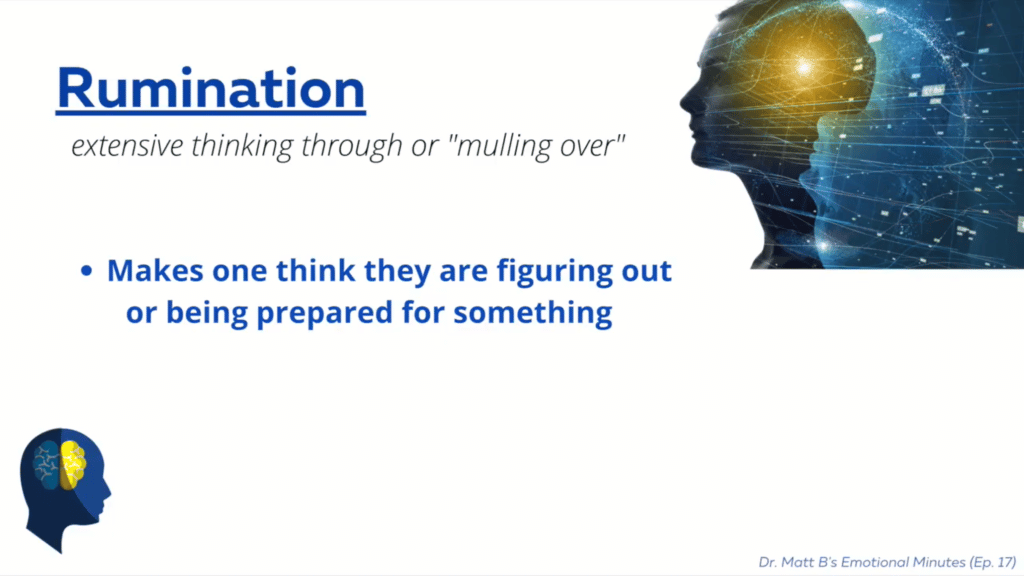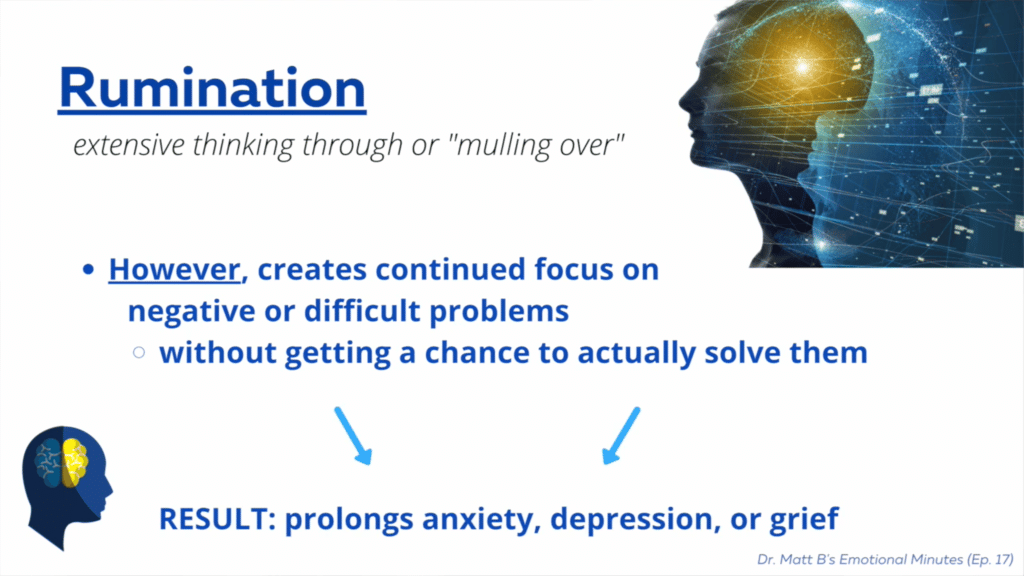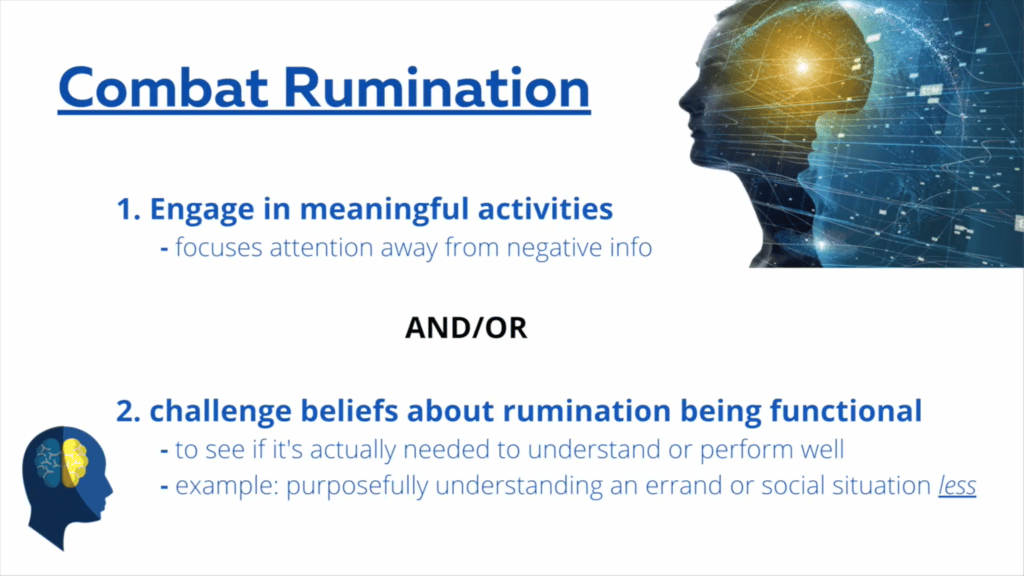Sometimes people ask, “What is rumination?”. This video explains rumination as extensive thinking through or “mulling over” challenging situations and it discusses how rumination can often be unhealthy (even at times it may seem helpful).
The video also talks about certain tools or strategies that can be used to cope or to help people ruminate less.
Welcome back, I’m Dr. Matt B and these are your Emotional Minutes. Today we are talking about rumination.
Defining Rumination
So, what the heck is rumination? Rumination is really thinking through or mulling over something. It can also mean focusing on one topic extensively and for a long time. Everybody ruminates and most people will engage in it at some point in their lives. For example, if we lost a job, we might think about things that we could have done different.
It can also happen if we lose a loved one or experience something like grief. We might think a lot about the person and what we would have said to them. Sometimes those periods can subside after a little while and go away.

When Rumination Signals Trouble
However, extensive or frequent long-term periods of rumination is common in mental disorders. Most frequently in mental disorders like depression and anxiety disorders, especially generalized anxiety disorder and social anxiety disorder.
When it becomes a problem for people is when they start to rely on rumination. For example, they may use it as a way to overly go through, plan, or figure out their life. Rumination sticks around for people who rely on it because they believe they’re using a strategy to figure out their life, get answers, or understand things that happen.
An example of this is people thinking about past failures and how they could have done things differently. Experiencing past-focused rumination is often found in depression.
Future Oriented Rumination
Future oriented rumination can occur in mental disorders like generalized anxiety disorder. For example, ruminating about a future event to try to figure it out or understand how to deal with it. But, in focusing on the negative aspects, they are staying in that negative space and focusing on the negative.
While they are caught up in this, their worry or their anxiety about all those things still sticks around. Thus, they never get a chance to deal or cope with their anxiety. This also means they can’t find adaptive or functional strategies to help them deal with the anxiety or worry itself.

Strategy: Finding Meaning and Joy
If you notice that you are ruminating often, there are strategies to help you take your mind off of it. One strategy is to get up and do something that gives you meaning or joy. This can give you something different to do, as opposed to spending time ruminating. It also helps focus your attention away from the negative aspects of the what you are thinking about.

Strategy: Question Your Thoughts
Another trick to combat rumination is to question beliefs you ruminate about and why you believe them.
Let’s consider situations like doing an errand or social situations where you want to understand what is happening. One way to challenge negative beliefs is to purposefully go into those situations despite not fully understanding them. The purpose of this is to not ruminate or work through what to do ahead of time, then see how it goes.
Many times, people find that they make it through the situation just fine. Thus proving they do not need to spend so much time mulling over those situations. This shows that their belief about rumination being necessary is not actually supported. When you do this in enough situations, you prove to yourself that you do not need to rely on rumination. This breaks the pattern of rumination.
If you find that you are ruminating or mulling over things a lot, I recommend contacting a mental health provider. You can work with them to find tools and strategies to counteract rumination.



